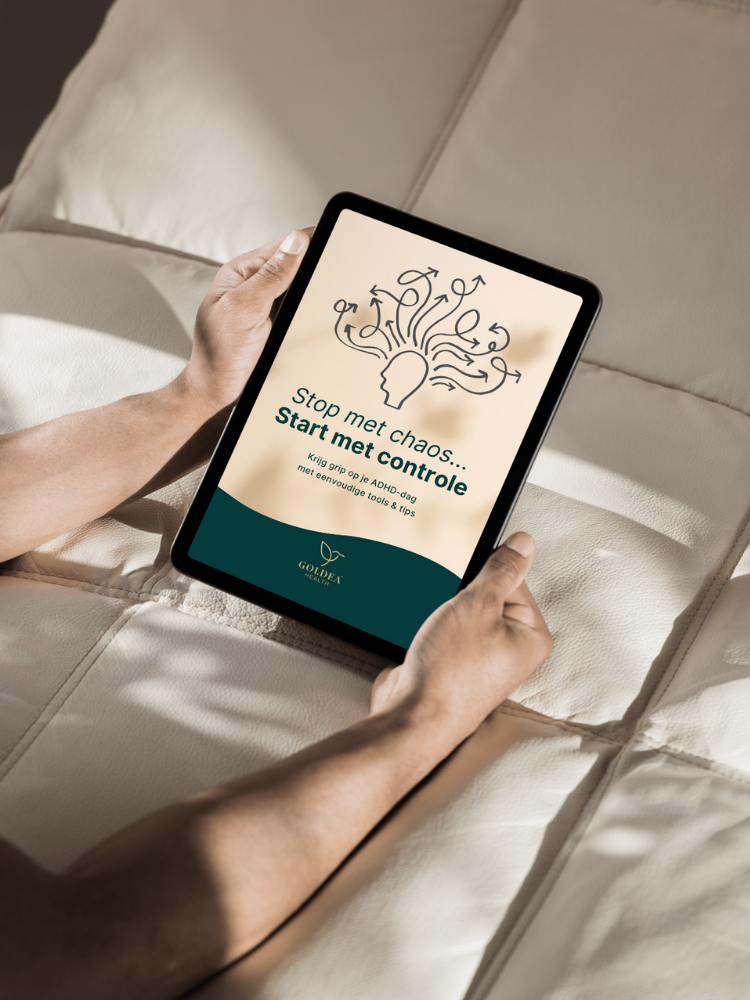Reading time: 2 minutes
Mental exhaustion: symptoms and what to do
In this blog you will discover the symptoms of mental exhaustion and more importantly, how to deal with it.
We all know that feeling of physical exhaustion after a tough workout, where your muscles scream for rest. But what about mental exertion?
It's like juggling thoughts, an art in itself. Sometimes it's difficult to recognize when our minds need a much-needed breather. But just as your body needs rest and recovery after exertion, so does your mind. And when your brain is constantly running at full speed without the necessary downtime, it can result in something many of us will recognize all too well: mental exhaustion.
What is mental exhaustion?
Imagine your brain as an overheated laptop that's been running for too long without a break. Mental exhaustion is like that moment when that laptop starts crashing and simply stops functioning properly.
Negative thoughts take over, your concentration lapses, and your memory starts to show gaps. It's a bit like an old laptop running slow, with freezes and crashes. And if that's not enough, sudden mood swings can wreak havoc on your mood.
Mental exhaustion can manifest itself in a variety of symptoms, including:
- Headache and muscle pain
- Tension in your body
- Sleep problems
- Difficulty completing daily tasks
- Physical fatigue
- Brain fog
- Irritability
- Doom-mongering
- Persistent feeling of being overwhelmed
- Lack of motivation
- Feeling of helplessness
- Having trouble making decisions
- Procrastination and avoidance behavior
- Isolating yourself
- Not taking good care of yourself
- Indecisiveness
Triggers for mental exhaustion
Several factors can lead to mental exhaustion, including:
Internal stressors , such as the drive for perfection and unrealistically high expectations for yourself, play a major role here. They create a constant pressure that exhausts your mind.
External stressors: These include a buildup of responsibilities, life changes, insufficient sleep, excessive use of phones, social media, laptops, screens, financial worries, and conflict situations.
Unfortunately, modern Western society provides fertile ground for this spectacle. We're encouraged to always be "on," always available, and strive for perfection in everything we do. The result? A constant feeling of being "too busy" and a lack of clear boundaries. Consider:
- Work pressure : Overload at work, deadlines and a high sense of responsibility.
- Personal stressors : Relationship problems, financial worries, and health issues.
What to do?
The good news is that steps can be taken to prevent and treat mental exhaustion. Here are tips to help you!
5 tips
Screen time restrictions : It's no secret that screens dominate our lives. To combat mental exhaustion, try to reduce your screen time. Maybe you want to impose a digital curfew on yourself (you can easily turn this on in your settings these days), such as being offline before 10:00 AM and after 8:00 PM. Or turn off notifications and allow yourself some "internet-free" time during the day. It's amazing how a little distance from the screen can help.
Regular breathers : We live in a world where haste is the norm. Yet, taking short breaks throughout the day to refresh your mind is invaluable. Even a quick five minutes can reset your nervous system. Stand up, stretch, breathe deeply, and take a deep breath. You'll be amazed at how these mini-breaks can restore your energy.
Self-reflection and setting boundaries : If mental exhaustion is a recurring theme in your life, it's time for some self-reflection. What is your fatigue trying to tell you? Perhaps it's time to address your perfectionism, find work you truly enjoy, or introduce more structure into your life. Learn to say no and set clear boundaries to protect yourself from excessive commitments.
Active relaxation : Relaxation is more than just Netflix and social media. While it can be nice to binge-watch a show every now and then, it doesn't replenish your energy reserves. Add active relaxation to your routine, such as gentle yoga, meditation, breathing exercises, walks at dusk, or simply doing nothing (lounging!). It will help you truly recharge.
A healthy evening routine : A good night's sleep is also incredibly important when you're mentally exhausted. Limit your screen time before bed and create a healthy evening routine of at least 20 minutes. Consider meditation, breathing exercises, reading, stretching, a comprehensive skincare routine with Dr. Hauschka products , or journaling.
Let writing clear your mind, embrace your emotions, and soothe your worries, or even plan your next day. A calm mind means better sleep and less chance of mental exhaustion.
Bonus tip: Goldea Health Supplement Mood Control
Sometimes a little extra help is needed to get your mental well-being back on track. If you find the tips above aren't enough, consider the "Mood Control" supplement. This can be a valuable addition during your recovery.
Conclusion
Mental exhaustion is a common problem, but with the right steps and support, you can improve your mental well-being. It's important to note that mental health is just as important as physical health.
By recognizing the symptoms and taking the right actions, you can effectively manage mental exhaustion and live a healthier, more balanced life.
Do you have any questions or would you like more advice about treating mental exhaustion? Feel free to contact us: Click here for free advice. We're always available to provide free, personalized advice from our orthomolecular therapist, Cynthia.
Need more inspiration?
Visit our Instagram page or check out our other recipes and blogs for more healthy and tasty ideas.



